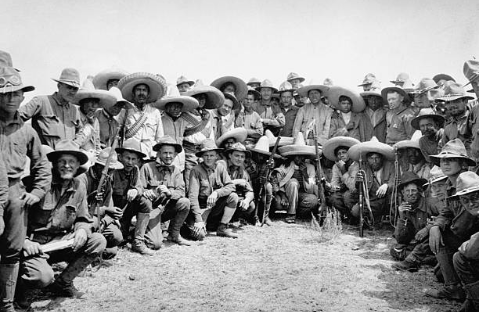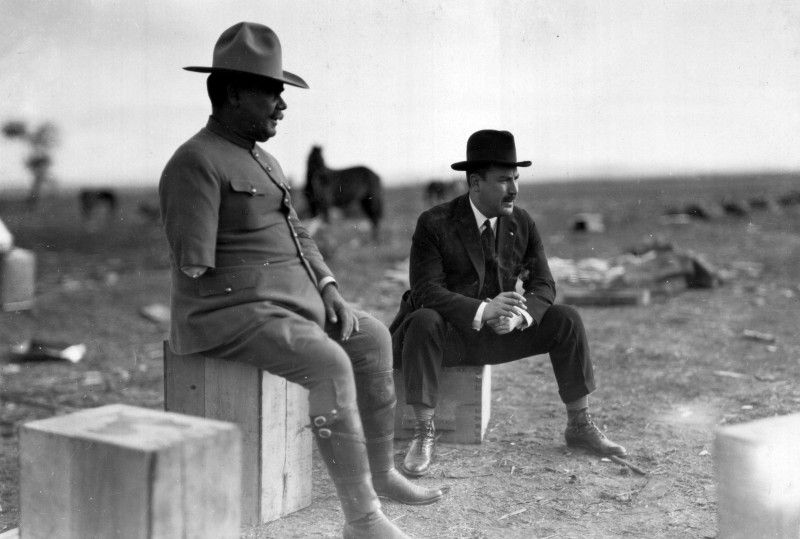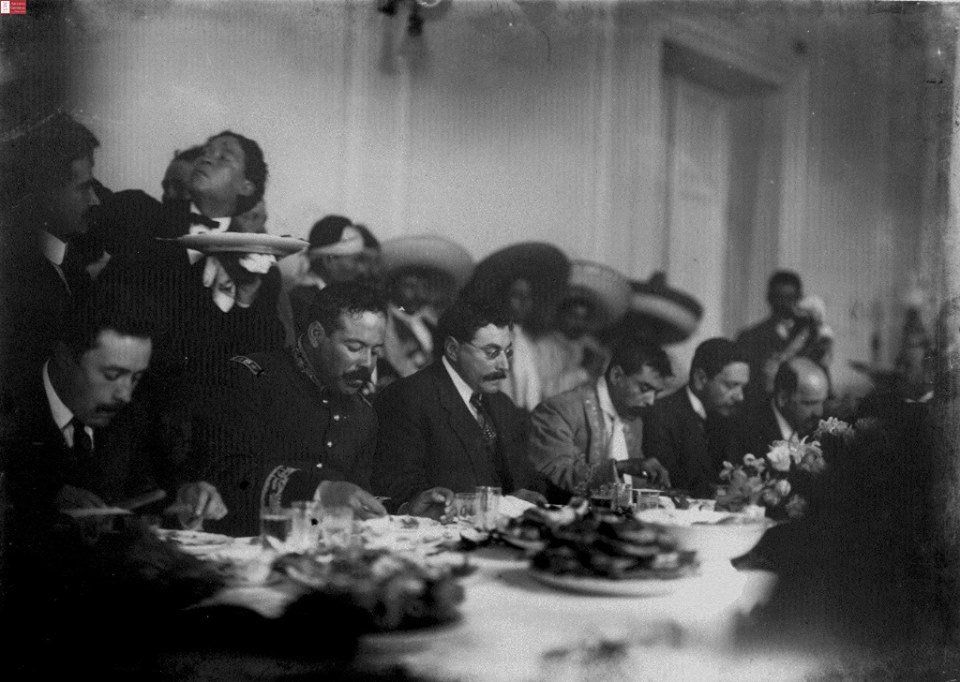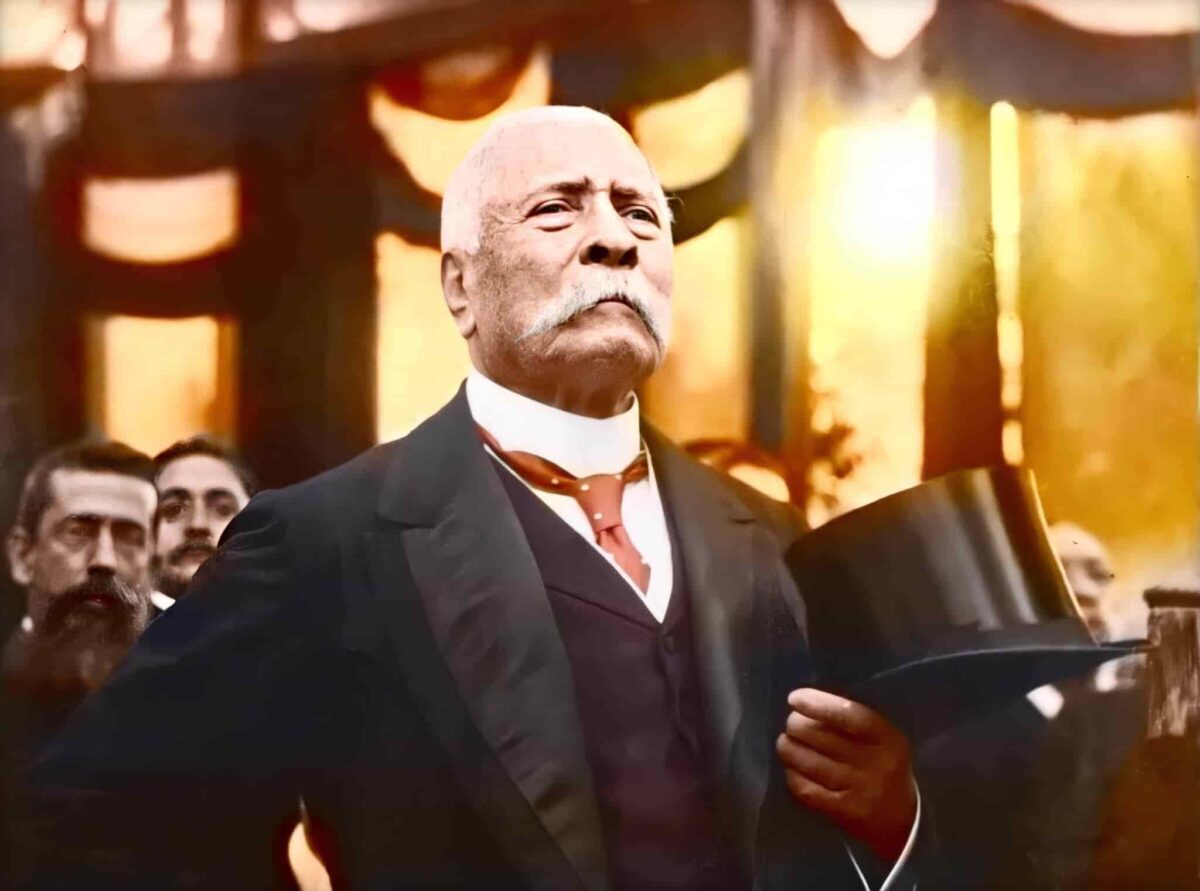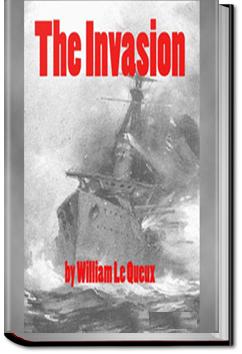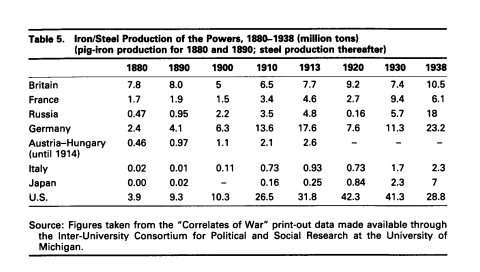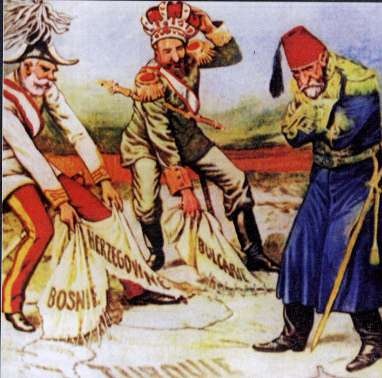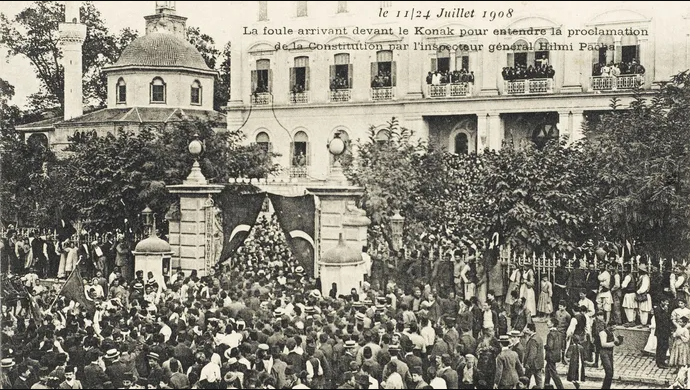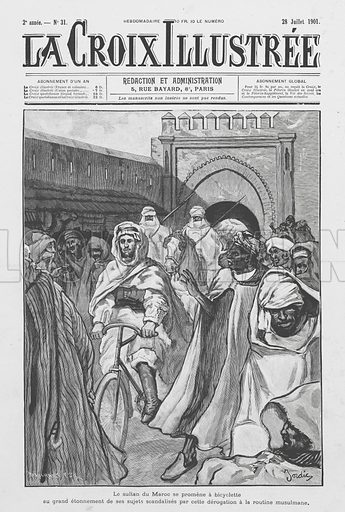While the Mexican Revolutionaries fought for the land, the Great Powers tried to pick the winner. Germany and Britain, Japan and of course the US, all schemed and intrigued. We talk about the Kaiser’s offer of Arizona, Texas, and New Mexico to Carranza and why Carranza didn’t want them; why Japan thought German proposals “simply insane”; why Britain mostly just wanted the oil; and how Wilson’s sending Pershing in to catch Pancho Villa led to Pancho Villa’s force growing from 500 to 10,000 men. The short coda to end our series on the Mexican Revolution.
Tag: World War Civ
The Mexican Revolution pt3: The Downfall
Obregon defeats Zapata and Villa in battle. Carranza betrays the workers’ unions. The Morelos commune lives on, though its leaders fall one by one until Zapata himself. Villa too. And Obregon. And Carranza. We ask, what was it all for? And we give you the answers of some historians of the revolution: it was not in vain!
Mexican Revolution pt2: Villa and Zapata take Mexico City
Porfirio is out, Madero is in, but he has the same problem: how to stop the invincible peasant revolution now in motion? And the answer is, he can’t! Pancho Villa and Emiliano Zapata take the capital, but the seeds of their downfall and of their glorious peasant revolution are already laid. Part 2 of our miniseries on the Mexican Revolution.
The Mexican Revolution pt1: The end of the Porfiriato
The Mexican Revolution was an extraordinary event in 20th century history. In part 1 of our miniseries on the revolution we give the background from the Mexican-American war to the end of the quarter decade of Porfirio Diaz. The class balance of forces leading to the revolution and the dramatic events. We also talk about the main book Justin is using, Adolfo Gilly’s La Revolucion Interrumpida, written by an Argentinian-Mexican revolutionary in a Mexican prison! The intro and outro music for this episode is the Mexican Revolutionary song, La Cucaracha, performed by the Castilians. Listen to it at archive.org: https://archive.org/details/78_la-cucaracha-the-mexican-cockroach-song_the-castilians-stanley-adams_gbia0004379
World War Civ 14b: Anglo-German Naval Race pt2 – The Dreadnoughts
We talk about the fearsome dreadnought, the race to build it, the Le Queax novels that were the Red Dawn of the 19th century, the Heartland theory of history, and conclude our discussion of the naval race. The tensions are getting high…
World War Civ 14a: Anglo-German Naval Race pt1 – Theorists and Practitioners of World Domination
Part 1 of 2 on the Anglo-German Naval Race. We start with a modern theorist, Paul Kennedy, and his thesis that industrial power translates to military power. Then some earlier imperialist theorists we’ve mentioned before: Mahan and Mackinder, who Justin finally read. Then, the practitioners of naval power, Admiral Tirpitz on the German side and Fisher on the English. The first of two parts on the Anglo-German Naval Race leading up to WW1.
World War Civ 13: The Bosnian Crisis 1908
First we announce Civ Books, where you can buy some of the best Civilizations Podcast transcripts in hard copy. Then, we reveal two of the most long-standing geopolitical disagreements that Dave and Justin have hitherto unresolved: one on the rights and wrongs of the Yugoslav war of 1999, and the other on the status of Russia in its neighbourhood. Do these affect the way we interpret events on things like the 1908 Balkan Crisis, when Serbia and Austria-Hungary almost started it all off? Perhaps it does. After our declarations of bias we talk about the unfolding of the crisis, how Bismarck would have handled it differently, how Lenin saw it all as theatrics to make socialists take their eyes off the prize, and how it all ended up leaving everyone learning the wrong lessons.
World War Civ 12: The 1908 Revolution in Turkey
The Young Ottomans and then the Young Turks make a constitutional revolution in Turkey in 1908. We talk about them, the ideas (science, constitutionalism) that motivated them as well as the ideas that didn’t (socialism, equality). And of course how what’s happening in the Ottoman empire is an antecedent for WWI.
World War Civ 11: The Morocco Crisis of 1905
France’s incremental takeover of Morocco based on their colonization of Algeria; Germany declares that it will protect Morocco’s sovereignty, which it doesn’t actually do. See how Morocco’s colonization became another cause of World War 1. Also listen to Dave’s mic improve in the last half hour!
World War Civ 10: The Last Years of Austria-Hungary
The Austro-Hungarian Empire lasted hundreds of years but could not survive WWI. We look at its makeup, its economy, its socialist movement, at Franz Josef and the glamorous empress Sissi, and wonder whether the end of Austria-Hungary was inevitable.

